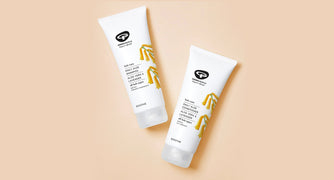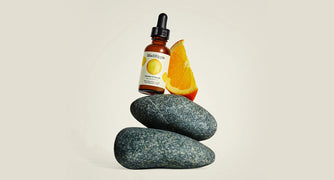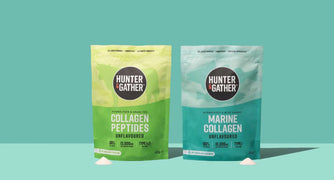Fats are essential nutrients to good health but due to many wrong turns by the food industry, most dietary fats do more harm than good, Increasing dietary consumption of Omega-6 seed oils over the last century has led to a catastrophic decline in health and is a causative factor in Inflammation, lowered immunity, metabolic disorders, cancer, macular degeneration and much more. Omega-6 fats disrupt mitochondria (the cellular energy centre of cells) and It can take several years to eliminate this toxin.
Did you know that seed oils are the most destructive part of the modern diet? They are, and below we explain why and trace the history of this ‘poisoning’ of our food and the harm to our health. Whilst excess consumption of sugar, especially high-fructose corn syrup, has resulted in much ill-health, the damaging effects of Omega-6 oils are far worse.
The so-called Essential Fatty Acids, also known as Poly Unsaturated Fatty Acids (PUFAs), Omega-6 and Omega-3 occur in some raw foods such as seeds and nuts in a balanced ratio. However, food industry mendacity AND poor dietary habits have resulted in a dangerous swing towards an unbalanced increase in pro-inflammatory and immune-suppressing Omega-6 fats. Thus the natural balance between Omega-6 and Omega-3 oils has been lost. In nature it appears that a healthy balance between Omega-3 and Omega-6 is 1:1.
★ ★
The two-edged sword at the destructive core of ‘fats that harm’
The traditional cooking fats: lard, tallow, butter, ghee, goose fat and coconut have a relatively high ‘smoke point’ and remain stable during the cooking process. On the other hand, the seed oils have a low smoke- point and readily break down to produce toxins1
The polyunsaturated seed oils are intrinsically unhealthy when unbalanced in favour of Omega-6. When consumed ‘cold’ the seed oils cause inflammation, when heated, toxic by-products add to the damage. The body can convert excess Omega-6 fatty acids into another fat, arachidonic acid a building block for molecules that cause inflammation, constrict blood vessels and promote blood clotting. It can take several years to eliminate Omega-6 fatty acids. However, regular use of an infra-red sauna with sweating will speed up the elimination process.
-
Fats are essential to health. What is the difference between a fat and an oil? Oils are liquid at room temperature and fats are solid at room temperature
-
The ‘low fat’ advice is wrong
-
Fats do not increase cholesterol (which anyway is essential for health)
-
Fats do not cause heart disease
-
Fats are not the cause of obesity
-
Saturated fats — the traditional use of butter, ghee, coconut oil and animal fats such as lard, goose fat and
beef tallow in cooking is healthy. Use virgin olive oil as a dressing and occasional low temperature coking.
-
Polyunsaturated fats from seed oils — Poly Unsaturated Fatty Acids (PUFAs) — are the most damaging component
of the modern diet in the western world. Specifically the Omega-6 PUFAs.
-
A study has shown that palmitic acid, a fatty acid found in palm oil, which is a common ingredient in cakes, biscuits,
and chocolate, can increase metastasis, or spread, of cancer.
Avoid all of these vegetable oils and fats which are high in Omega-6
Safflower
Sunflower
Soybean (often from Genetically Modified beans) Corn
Rape3
Canola
Palm
Frying oil blends
Margarine and margarine-like spreads
Some ‘foods’ such as crisps, pizzas, non-dairy milks, hummus and ‘prepared foods’ and such like contain substantial amounts of plain or emulsified Omega-6 oils
How it all went wrong
Expressed seed oils were originally used in the paint and varnishing industry and also for machine lubrication. In 1869 a French chemist discovered a way of hardening soluble oils. This would lead to the manufacture of margarine which became very popular especially during the two world wars when butter became scarce. Also, we have neglected the Biblical counsel to eat only of the ‘clean’ meats — the ruminants animals —cattle, sheep, goats and deer. Most ruminants have a four-chambered stomach and two-toed feet. Ruminants ‘ferment’ grass into protein having extremely low PUFAs and substantial healthy saturated fat. Today chicken is eaten to excess and as a source of protein is inferior to the ruminants. Chickens are omnivores which means that they eat worms, snails and small rodents and insects as well as grains and other vegetative foodstuff. The fatty acid profile of eggs from wild foraging chickens is totally different from those grain-fed. Specifically, commercial grain-fed eggs can contain 19 times as much pro-inflammatory omega-6 fatty acids as wild-fed organic eggs. Cheap battery-raised eggs cause inflammation whilst free range eggs oppose inflammation.
Dr Ancel Keys (1904 - 2004) was an American scientist who studied the influence of diet on health and concluded that eating a low fat diet would prevent coronary heart disease. Keys collected data on deaths from coronary heart disease and fat consumption from 22 countries. Despite the fact that 22 countries provided statistics, Keys cherry-picked the data from the 7 countries which supported his theory that animal fat was the main cause of coronary heart disease in order to publicise his opinions. The results of what later became known as the “Seven Countries Study” appeared to show that serum cholesterol was strongly related to coronary heart disease mortality both at the population and at the individual level. As a result, in 1956, representatives of the American Heart Association appeared on television and stated that eating large amounts of foods containing saturated fats and in particular butter, eggs, lard and beef would lead to heart disease. Ancel Keys further recommended that unsaturated fats from vegetable oils would offer protection. However, the message went out that all dietary fats lead to obesity and cancer. The error of Ancel Keys has resulted in untold deaths from cancer, heart disease and obesity and the promotion of hydrogenated fats, margarines, seed oils and ‘spreads’ which have compounded the carnage. Ancel Keys, who was a professed atheist lived just short of 101 years seemingly unaffected by his dietary error but this may have been mitigated by spending 28 years in Italy on the Mediterranean Diet.
Dr. Chris Knobbe is an ophthalmologist and Associate Clinical Professor Emeritus, formerly of the University of Texas Southwestern Medical Centre, in Dallas, Texas. He traces the parallel growth of degenerative diseases and seed oils in a compelling YouTube presentation. He attributes the excessive consumption of Omega-6 oils as the major cause of macular degeneration.
The bottom line: use butter, ghee, coconut oil and animal fats such as lard, goose fat and beef tallow in cooking. Use virgin olive oil as a dressing and refined olive oil for low temperature frying.
NOTES
1. At frying temperatures conjugated double bond systems are detected. The reaction of oxygen with saturated fatty acids results in hydroperoxides, which immediately degrade in further radical reactions at frying temperature.
2. When overheated, unsaturated oils can form various harmful compounds, including lipid peroxides and aldehydes, which can contribute to cancer. When cooked, these oils release some carcinogenic compounds that may contribute to lung cancer when inhaled. Olive oil has a lower smoke point — the point at which an oil literally begins to smoke (olive oil smoke point lies between 365° and 420°F). When you heat olive oil to its smoke point, the beneficial compounds in the oil starts to degrade, and potentially health-harming compounds form.
3. Rapeseed oil is high in erucic acid, which is potentially toxic and can damage the heart, liver, and kidneys. To stay in business, Canadian rapeseed oil manufacturers looked for a way to keep the appeal of this product and they did this by genetically modifying rape to produce less erucic acid in their seed oil marketed as ‘Canola’. However, canola oil contains about 2.7 grams of Omega-6 per tablespoon.The ratio of Omega-6 to Omega-3 oil is about 20:1 in favour of Omega-6 in canola oil which makes it an oil to avoid.
The bottom line
The root of all disease is inflammation — the Omega-6 seed oils create inflammation
Photo by Nathan Dumlao on Unsplash






